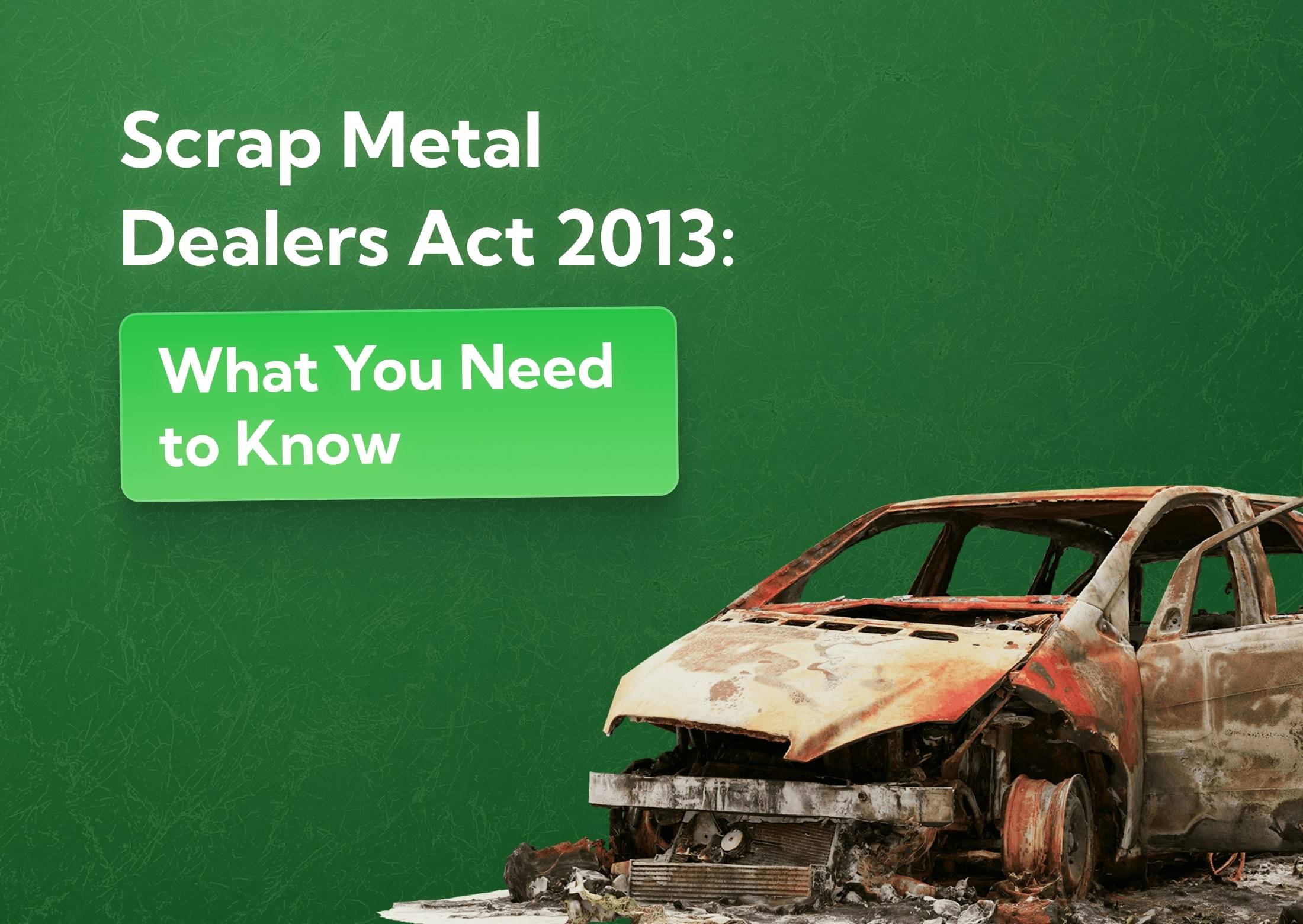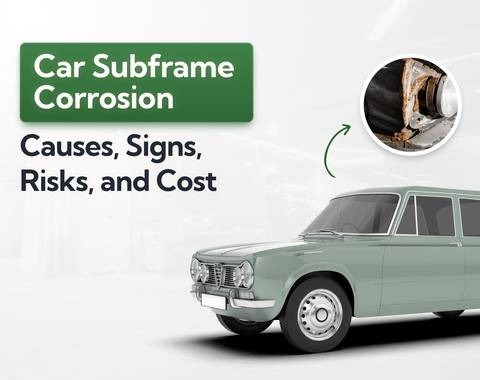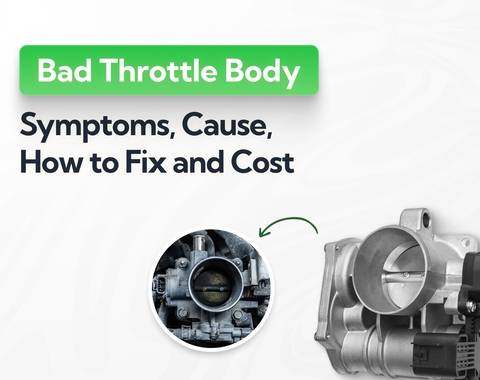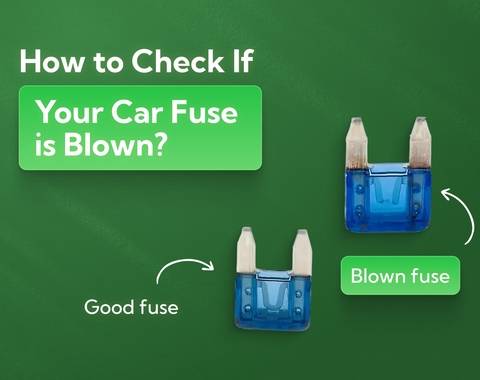Scrap Metal Dealers Act 2013: What You Need to Know
Thinking of scrapping vehicles or dealing in metal? The Scrap Metal Dealers Act 2013 sets the rules for licensing, payments, and legal compliance across England and Wales. This guide breaks down what drivers and traders need to know to stay compliant, avoid fines and protect their business from legal risk.
Last updated: 16th October, 2025

Award-winning CEO driving growth and social impact across automotive, recycling, and technology-led enterprise platforms.

Listen to this story
Chances are, you’ve heard of the Scrap Metal Dealers Act 2013. It’s the law that regulates how scrap metal is bought and sold in England and Wales. It was introduced to make the trade more secure, traceable and fair for everyone involved
In our 40+ years in the motor trade, we’ve seen the law’s technicalities trip up quite a few people. That’s why I’ve prepared this guide for UK drivers and scrap metal traders. Drivers need to understand their rights and what to expect when dealing with licensed scrap yards. Traders need to know their obligations to stay compliant and avoid penalties.
Here’s what we’ll cover at a glance:
- The key rules introduced by the Act
- What documents and checks are required when selling scrap
- How drivers can stay compliant and avoid penalties
What's in this article
- 1. Understanding the Scrap Metal Dealers Act
- 2. Do I need a licence to deal in scrap metal?
- 3. What are my legal obligations as a scrap metal dealer?
Understanding the Scrap Metal Dealers Act
A scrap metal dealer is any person or business that buys, sells, collects or processes scrap metal for profit. That includes scrap yards, car breakers, mobile collectors who pick up old appliances or car parts, and businesses that break down vehicles for their metal content.
The Scrap Metal Dealers Act 2013 is the law that regulates these activities in England and Wales. It applies to fixed-site scrap yards, mobile collectors who buy or collect metal door-to-door, vehicle dismantlers, car breakers and metal recycling centres.
The UK Parliament introduced the Act to tackle the rising problem of metal theft. At the time, it was costing the UK economy £770 million per year. When it came into force on 1 October 2013, it replaced earlier laws that had become outdated and ineffective.
Key changes it introduced:
- Licensing: All dealers must be licensed by their local council.
- Cash ban: Payments must be made by cheque or bank transfer for traceability and direct cash in hand.
- Record-keeping: Dealers must check ID and log every transaction.
- Tougher enforcement: Police and councils can inspect sites and close unlicensed operators.
Note: The Scrap Metal Dealers Act 2013 does NOT apply in Scotland or Northern Ireland, where different laws govern scrap metal trading.
Do I need a licence to deal in scrap metal?
Yes, you need a licence to deal in scrap metal. Under the Scrap Metal Dealers Act 2013, anyone buying or selling scrap metal on a business basis must hold a valid licence issued by their local authority. Trading without one is a criminal offence that leads to a fine of up to £5,000.
There are very few exemptions. Occasional private sales (like selling minor parts from your own car once) don’t require a licence. But if you're buying, selling, collecting or dismantling vehicles for profit, even on a tiny scale, you’ll need one.
What types of licences are available?
There are two types of scrap metal dealer licences under the Scrap Metal Dealers Act 2013: site licences and collector’s licences.
- A site licence covers a specific site where scrap metal is stored, processed or traded. It lets the licence holder and their employees operate from that location and move scrap to and from the site. It’s what you’ll need if you operate from a fixed business premises (e.g. a yard).
- A collector’s licence lets you collect scrap metal in a mobile capacity within a single local authority area. It does not allow you to operate from a site or store scrap long-term. It’s for mobile collectors who go door-to-door or pick up scrap around town.
You must choose one or the other per council. In the United Kingdom, you cannot hold both a site licence and a collector’s licence from the same local authority.
Let’s say you run a scrap yard that also offers collection services. Then you’ll still need a site licence. That covers the activities linked to your physical business location, including collecting vehicles from customers and bringing it back to your yard.
The key distinction is whether your operations are based at a fixed site.
How do I apply for a scrap metal licence?
Applying for a scrap metal licence in England and Wales is quite straightforward.
Step 1: Prepare your paperwork.
Before you apply, gather:
- A basic DBS certificate for all business owners, partners and site managers (must be dated within the last 3 months).
- Photo ID (passport or driving licence) and proof of address for each named individual.
- Proof of right to work in the UK — this applies to all named individuals and is verified against Home Office records. If you can’t provide it, your application may be refused.
- Vehicle details and insurance documents if you’re applying as a mobile collector.
- Your HMRC tax check code (required for licence renewals and applications).
- Copies of relevant permits, such as your waste carrier licence.
Step 2: Submit your application.
Complete your council’s application form online or by post and pay the required fee. Fees vary by local authority: a new site licence typically costs £600 to £800 and a collector’s licence will run you £300 to £500.
Step 3: Pass council checks.
The council will run criminal-record and suitability checks, verify your documents and might inspect your site. Previous convictions don’t automatically disqualify you, but they’ll be considered. This period generally lasts 28 days.
Step 4: Wait for approval.
Processing times differ depending on your situation, but usually take between 4 to 8+ weeks, including the 28-day consultation period. Once your scrap metal dealer licence is granted, you may begin operating under the licence, following all obligations, which we’ll get to down below.
Licences usually last three years, after which you’ll have to renew it. The cost to renew also varies by council, but will be lower than the new licence fee by 25-50%.
What are my legal obligations as a scrap metal dealer?
Operating as a licensed scrap metal dealer in England and Wales means you’ll abide by five core principles across all of your business dealings:
- Verify and record every transaction.
- Accept cashless payments only.
- Display your licence prominently.
- Cooperate with inspections.
- Follow waste-carrier, environmental-permit or planning rules and tax laws.
Beyond this, your business has to follow fair trading practices, avoid buying suspected stolen goods and cooperate fully with authorised council and police officers, who can inspect your site, vehicles and records at any reasonable time.
Can I pay cash for scrap metal?
Never. By law, all payments must be made by cheque or electronic transfer. Paying in cash for scrap metal is illegal and will lead to fines or prosecution if you’re caught. This rule creates a clear paper trail to trace transactions and prevent stolen metal from being sold anonymously.
Do I need to verify the seller’s identity?
Yes. The law requires you to check and record the seller’s identity before every transaction. Acceptable ID includes a valid photo ID (such as a passport or driving licence) plus proof of address dated within the last three months (like a utility bill or council tax statement).
If the seller’s address looks suspicious or doesn’t match their ID, you should refuse the transaction. This protects you from handling stolen metal. Depending on how significant it seems, consider reporting your concerns to the police or local authority.
What records must I keep?
The Scrap Metal Dealers Act requires you to keep a detailed record of every transaction, including:
- The date and time of the sale or purchase
- The name and address of the seller
- A copy or record of the seller’s photo ID and proof of address
- Vehicle registration numbers
- A description of the metal (type, form, weight, quantity)
- The payment method and the name of the person who made or received the payment
Keep these records for at least three years from the date of the transaction.
Where should I display my licence?
You must display a copy of your scrap metal dealer licence where it’s easy for the public and enforcement officers to see.
- Site-based dealers: Display it prominently at each licensed site, such as the office or main entrance.
- Mobile collectors: Display it inside the vehicle you use to collect scrap, so it’s clearly visible from outside.
If you don’t do this, you could be fined £1,000.
What the experts say

Steven Jackson OBE
What happens if I don’t comply with the Scrap Metal Dealers Act 2013?
Both local councils and the police have the power to enforce the Act. Councils issue and monitor licences, while the police investigate illegal trading, stolen metal and breaches of the law. They can both carry out unannounced inspections, request to see your records and shut down unlicensed operations.
In our experience, authorities normally discover violations via spot checks, audits and tip-offs from the public. If you’re caught operating without a licence, failing to keep proper records or accepting cash payments, you’ll face fines and possible licence revocation, seizure of your stock and even prosecution.
Serious or repeated offences result in losing your right to trade altogether.
What are the penalties for violations?
The penalty for violating the Scrap Metal Dealers Act 2013 depends on which violation (or combination of violations) you’ve made.
- Operating without a licence: Unlimited fine and potential stock seizure.
- Cash payment violations: Fine up to £5,000 and possible licence revocation.
- Failure to verify seller’s identity: Fine up to £1,000 and possible licence revocation.
- Poor record-keeping: Unlimited fine and enforcement action.
- Failure to display licence: Fine up to £1,000.
- False information: £1,000 fine for seller giving a false name or address; £1,000 fine for a dealer giving false information on their licence application.
Severe or repeated breaches can carry unlimited fines in magistrates’ or crown court, with some offences punishable by up to 12 months’ imprisonment, though these are related to large-scale fraud and theft crimes.
If a company commits an offence, both the company and any responsible directors or managers can be held personally liable. And a conviction or history of non-compliance will make it harder (or impossible) to renew or get a new licence in future, effectively putting you out of business.
Can authorities inspect my business?
Local councils and the police both have powers to inspect licensed sites and mobile collectors. They can examine your licence, records of transactions, ID checks and payment methods at any time to confirm you’re complying with the law. They also have the power to issue a closure notice if they find an unlicensed site operating, which can then lead to a court-ordered closure.
In most cases, authorities give you advance notice before carrying out an inspection. However, if the inspection relates to a complaint, suspected misconduct or prior evidence of non-compliance, they’ll usually enter without notice instead.
During any inspection, you’re legally obliged to cooperate, give access to records and answer reasonable questions. Refusing entry or obstructing officers is a criminal offence and operating without a licence may result in a closure notice being served against your business.
Can my licence be revoked?
Your local council can revoke your scrap metal dealer licence if you breach the Act or no longer meet the “suitable person” criteria. Common grounds for this include:
- Using false documents or ID
- Letting someone else use your licence
- Lacking the qualifications you claimed to have
- Losing the right to work in the UK
- Being convicted of a relevant offence
- Breaching your licence conditions or training requirements
- No longer being deemed fit and proper
Before revoking or varying your licence, the council has to notify you in writing and give you the right to make representations. You’ll have at least 14 days to respond or attend a hearing to put forward your case.
If the licence is revoked or varied and you disagree with the decision, you can appeal to the magistrates’ court within 21 days of receiving the notice.
Councils sometimes also choose to vary your licence by adding new conditions instead of fully revoking it, for example by tightening reporting requirements. And in some cases, they impose additional conditions rather than revoke the licence outright. This is particularly common for first-time breaches.
What additional rules apply to car scrapping?
Scrapping vehicles comes with stricter regulations because cars contain hazardous materials like oils, batteries and coolant. Only an Authorised Treatment Facility (ATF) can legally dismantle and recycle vehicles and they need to issue a Certificate of Destruction (CoD) to confirm the car has been scrapped properly.
The UK’s environmental rules require ATFs to remove and handle pollutants responsibly, recycle as much material as possible and comply with waste disposal standards.
Do I need special permits to scrap vehicles?
Yes. If you scrap vehicles, you must operate as an ATF, which requires a valid environmental permit from the Environment Agency. This is separate from your scrap metal dealer licence. You need both to stay compliant.
ATFs follow strict depollution standards for the removal of fluids, batteries and other hazardous parts before dismantling a vehicle. You’ll also need to meet rules for waste storage, handling and disposal, and maintain a clean, secure site.
That includes:
- Storage on impermeable surfaces (e.g. sealed concrete) with sealed drainage to prevent pollution
- Liquids and hazardous waste in labelled, leak‑proof containers, in bunded areas to catch spills
- Batteries in upright in corrosion‑resistant containers, separated by type, under cover or in weatherproof conditions
- Vehicle shells only stored after full depollution, and only in designated areas on hardstanding
- Specific rules on mixing hazardous waste (if not fully depolluted)
Also, if you transport scrap vehicles or waste metal, you have to register as a waste carrier with the Environment Agency.
What is a Certificate of Destruction?
A Certificate of Destruction (CoD) is an official DVLA document that confirms a vehicle has been legally scrapped. As an ATF, you’re required to issue one every time you scrap a car, van or 3-wheeled motor vehicle. You’re legally required to issue the CoD free of charge.
The certificate includes the vehicle’s registration number, VIN, make, model, date of destruction and the ATF’s details. You’ll notify the DVLA electronically once the vehicle is scrapped (paper certificates are no longer valid) within 7 days of destroying the vehicle.
Failing to issue a CoD or notify the DVLA can result in fines or enforcement action, and may leave the registered keeper liable for tax or legal issues tied to a vehicle that’s no longer on the road.
How should I pay for scrapped vehicles?
When buying a vehicle for scrap, you’re going to follow the same payment rules as any other scrap metal transaction: no cash allowed. All payments must be made by cheque or electronic transfer to create a traceable record.
Verify the seller’s identity with valid photo ID and proof of address and record those details alongside the payment. Always check the V5C logbook to confirm the registered keeper and ensure the vehicle isn’t stolen or cloned.
If anything seems off (mismatched VINs, fake addresses, suspicious behaviour), don’t move forward with the transaction and consider reporting your concerns to the police or DVLA. Scrapping a stolen vehicle, even unknowingly, lands you in legal trouble.
Can I sell parts from scrapped vehicles?
Yes, you can sell used parts from scrapped vehicles in the UK, but only if you’ve legally acquired the vehicle and removed the parts as an ATF. The vehicle must be fully depolluted, and parts should be clean, functional, and safely stored to avoid classification as waste.
Used parts are not classed as scrap metal, but you still need to maintain full traceability. Keep records of:
- The vehicle registration number and VIN
- A description of each part sold
- The date of removal and sale
- Buyer details, especially for high-value components like engines, gearboxes, or catalytic converters
This keeps stolen parts from entering the market and ensures compliance with waste and environmental laws.
How can I ensure Scrap Metal Dealers Act compliance?
Believe it or not, it’s about culture more than anything. The most successful scrap dealers have two things in common: (i) airtight standard operating procedures and (ii) employees who feel compelled to follow them.
Building a strong compliance culture starts with clear expectations and accountability. Make sure everyone in your business understands the rules of the Scrap Metal Dealers Act 2013, particularly those around ID checks, payment methods and record-keeping. Train everyone thoroughly, document your SOPs and update them when regulations change.
Also, we strongly recommend investing in software to track transactions, store records securely and flag risks. And carry out routine self-audits and spot checks to catch mistakes early and fix them before they become violations.
What systems should I put in place?
To stay compliant, you should have:
- A digital record-keeping system to log transactions, seller details, ID copies, and payment methods
- ID verification procedures, including staff training on acceptable documents and how to spot fakes
- A secure document storage system with access controls and retention tracking
- A payment tracking system that ties each transaction to a bank transfer or cheque
- VIN and registration number logging for vehicle-related scrap and parts sales
- A compliance checklist for daily operations, including pre-transaction checks and licence display
- Audit logs or reports to review activity weekly or monthly
- A clear escalation process for suspicious transactions or potential fraud
There are a number of specialised software platforms you could consider using. MetalTrack is one you can use to scan and store ID, manage vehicle details and generate reports. FRED Metal and Waste Recycling Software is one that supports mobile operations, scheduling and tracking if you’re a collector.
More broadly, waste‑and‑recycling ERP tools like AMCS give you integrated modules for compliance, environmental health, inventory and logistics, which is useful if you plan on offering pickup services or salvaging parts for resale.
How do I spot stolen metal?
Look out for the red flags: sellers who offer unusually low prices, are vague about where the metal came from or show up without proper identification. Be cautious of vehicle registration mismatches, inconsistent VINs and anyone who’s unwilling to present a V5C logbook.
For bulk purchases, do your due diligence. Only deal with known, verified suppliers and always log the seller’s full details. Refuse any transaction where the seller lacks valid ID, the metal seems suspicious or something just feels off.
If you’re ever in doubt, report it to the police or your local council. You’re better off walking away than risking a criminal investigation.
What are the most common mistakes?
We’ve been in the scrappage business for decades. The most common mistakes we see are also the most predictable:
Some of the most frequent compliance slip-ups include:
- Poor or incomplete record-keeping
- Accepting photocopied or expired ID
- Accidentally taking cash for scrap
- Failing to display your licence properly at your site or in your vehicle
One we see catch people every now and then that’s less talked about is not making voluntary disclosure when you realise a mistake has been made.
If you discover you've breached a rule (like forgetting to check ID, accepting the wrong form of payment, or missing a record), you can report it yourself to your local authority or the Environment Agency. Doing so shows you're acting in good faith. In lots of cases, regulators treat it more leniently than if they uncover the issue on their own.
Frequently asked questions
It usually takes 4 to 8 weeks, depending on your local council’s processing time, background checks and whether any objections are raised during the public notice period. Since there’s a mandatory ~28-day consultation period, the process will never take any less than 4 weeks.
No. You cannot trade until your licence is approved and issued for you to display. Operating without one is a criminal offence and could jeopardise your chances of getting licensed at all. If you’re caught doing so, you’ll be fined up to £5,000.
You’ll need a separate site licence for each location. You’ll apply for each one individually. You’ll be held responsible for all the same display, record-keeping and inspection requirements as well.
No. A bank transfer is not considered cash under the Scrap Metal Dealers Act 2013. It is a legal and traceable form of payment. Only physical cash is banned; electronic payments like BACS, Faster Payments, or online transfers are fully compliant.
If you lose your records due to damage, theft or error, report it to your local authority ASAP and document how the loss occurred. We tell our scrap partners to keep backups because failing to retain records for the required period might still lead to enforcement action.
Yes. Charities that buy, sell or collect scrap metal for profit still need a licence under the Act. The law does not exempt charitable organisations, though councils consider charitable status during the application process. Compliance rules still apply.
If you’re scrapping metal waste from your own business and not buying or selling it commercially, you likely don’t need a scrap metal dealer licence. However, if you trade or transport scrap even once in a while, registration as a dealer and a waste carrier is required.
Most councils allow you to renew your licence up to a few months before it expires. Renewing early is one way to avoid any gaps in coverage because operating without a valid licence, even briefly, is still an offence.
Since a scrap metal dealer licence is location-specific, you can’t simply transfer it to a new address. You’ll need to apply for a new site licence for the new location and will need to surrender or amend the old one, depending on council rules.
Definitely. If you operate in more than one council area through either fixed sites or as a mobile collector, you’ll need a separate licence from each local authority. Licences don’t carry across borders, even if it’s the same business name.
The council will consider your business partner’s record when deciding if your company is fit and proper to hold a licence. Certain convictions related to theft, fraud or environmental offences might lead to refusal, additional conditions or closer monitoring of your business.
For up-to-date guidance, check your local council’s website and visit GOV.UK for official resources on the Scrap Metal Dealers Act. Beyond that, industry bodies like the BMRA also offer useful updates, technical notes, compliance tips and practical support.
You’ll need to apply online through your local authority’s licensing department (each one is different). You can find this by searching for “{Your City/Borough Name} scrap dealer licensing” on Google.
Processes and timelines vary, so check your council’s specific requirements. You can contact them directly to ask about fees, documents, and application tracking.
A few more useful tools we recommend checking:
- Official Home Office guidance and legislation on GOV.UK
- BMRA compliance updates and best practice guides
- Environment Agency waste and permit info
- Templates, training courses, and legal advice services
- Trade publications for industry news and regulation changes
Create accounts on these platforms and sign up for email updates and you’ll never be out of the loop.
About Car.co.uk

Share on
Latest news & blogs










